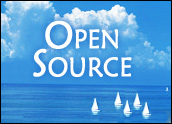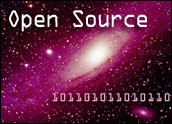
Microsoft andSugarCRM will team up to enhance interoperability between Microsoft Windows Server and SugarCRM products so users can take better advantage of the simplified administration available on the Windows platform. The companies made the announcement Tuesday at the Open Source Business Conference in San Francisco.
SugarCRM also unveiled plans for a new Sugar Suite distribution under the Microsoft Community License to be released in conjunction with the upcoming Sugar Suite 4.5 version.
Nearly 35 percent of SugarCRM’s customer base is running on Microsoft Windows Server, noted Bill Hilf, director of technical platform strategy at Microsoft.
BDO Seidman Customer Win
The first areas the two companies will address are improved SugarCRM support for Internet Information Services (IIS); and optimization for Active Directory and Microsoft SQL Server, including SQL Express, SQL Server Workgroup and SQL Server Enterprise.
In addition, SugarCRM plans to use the Windows Installer XML (WiX) toolset to build its forthcoming product installation technology as a Microsoft Software Installer (MSI) package for Windows Server 2003.
It has been difficult to gauge how far open source has penetrated into the CRM application sector — or for that matter, how it will stand up to related build-your-own initiatives that other vendors are offering — notably Salesforce.com’s AppExchange, which is only just beginning to penetrate the market.
To be sure, some companies are intrigued with the open-source CRM business case: By building their own applications, they can avoid much of the systems integration that is usually necessary to tailor a product to their needs.
SugarCRM announced at the conference that BDO Seidman, for one, has deployed its Sugar Professional edition on the Windows platform.
Other evidence that open-source CRM is a viable strategy is the entrance of new firms into the space. SplendidCRM, for example, is getting set to launch its own code base.
Evolutionary Detour
Some analysts question whether open-source CRM has already had its moment.
“I can understand building an open-source operating system,” Beagle Research principal analyst Denis Pombriant told CRM Buyer. The difference between that and an open-source application, he explained, is that it is far more difficult to recoup overhead costs incurred in the subsequent implementation and integration of the system.
However, a system like AppExchange, while still highly customizable, is still standardized enough that a company will realize a return, he said.
The case for open-source CRM was far more viable a year and a half ago, Pombriant suggested.
“I think it may wind up being an evolutionary detour in application development,” he remarked.













































